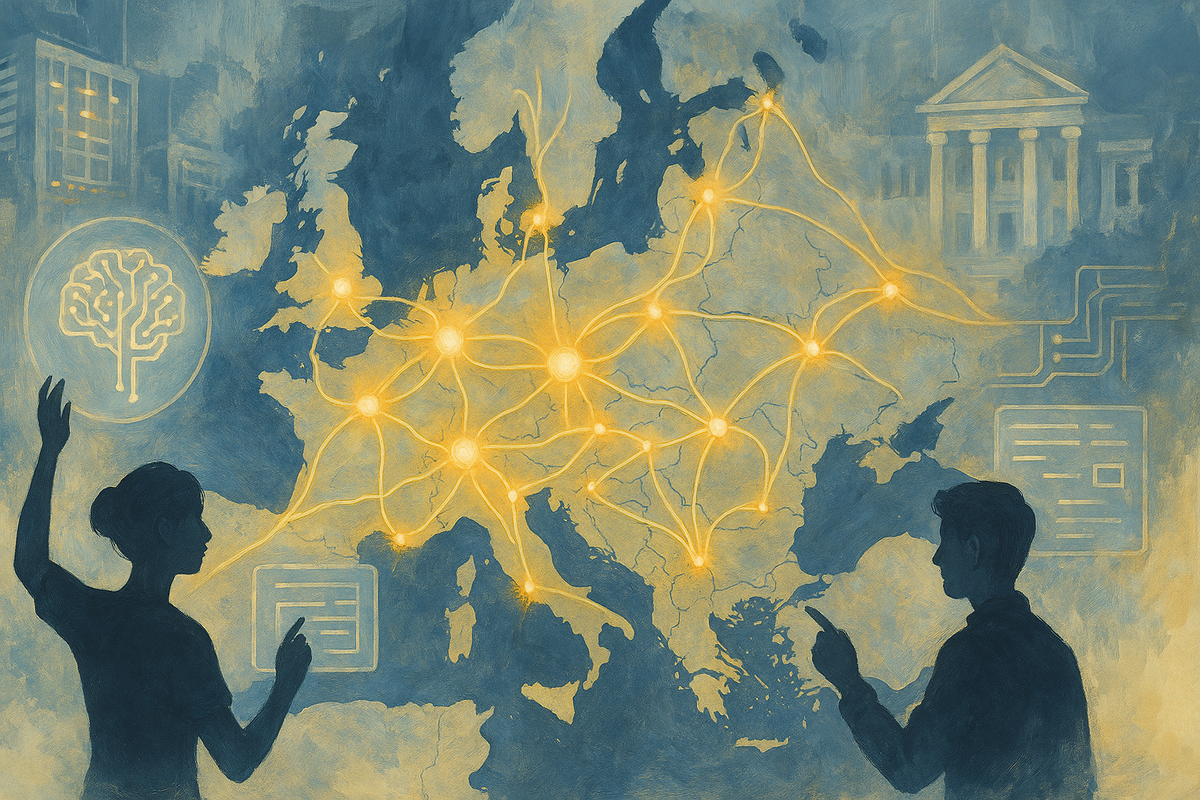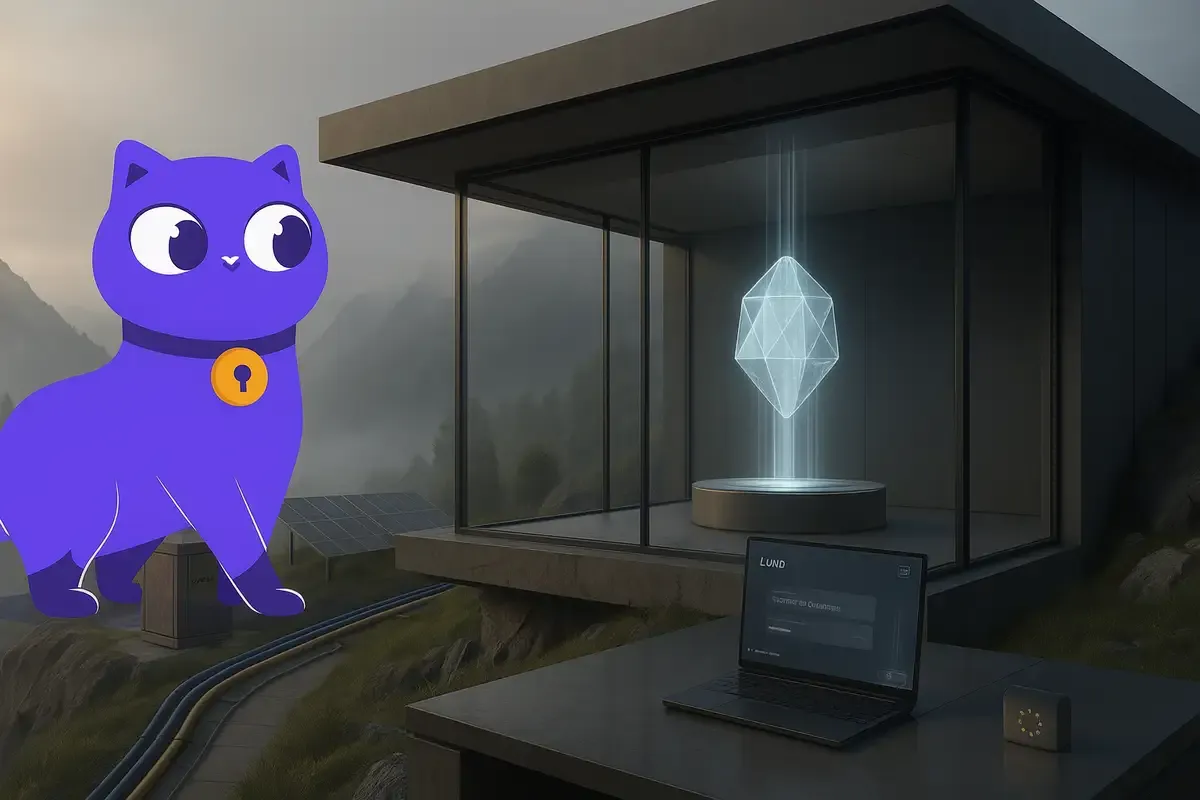💡 TL;DR - The 30 Seconds Version
🚀 Proton launched Lumo today, an AI assistant that promises zero logging and device-only encryption, directly challenging ChatGPT's data collection model.
💰 Lumo undercuts competitors at $12.99/month for unlimited chats versus ChatGPT Plus, Gemini Advanced, and Claude Pro at roughly $20 each.
🔒 Unlike ChatGPT (stores chats 30 days) and Gemini (72 hours), Lumo uses open-source models on European servers with no conversation storage.
🏭 This is part of Proton's €100 million EuroStack investment, moving infrastructure from Switzerland to EU due to proposed surveillance laws.
⚖️ Trade-off: Lumo can't remember past conversations or connect to other apps, and responses may be less sophisticated than GPT-4 or Claude.
🌍 Represents Europe's push for tech sovereignty—building alternatives to American and Chinese AI platforms that follow stricter privacy rules.
Proton wants to give you AI without the surveillance. The Swiss privacy company launched Lumo today, positioning it as the anti-ChatGPT for people who don't want their conversations feeding someone else's algorithm.
Unlike OpenAI, Google, or Anthropic, Proton promises it won't log your chats, train models on your data, or even have the ability to read what you're asking. Your conversations get encrypted on your device using the same technology that protects Proton's email and VPN services.
Yen says this is about fighting what he calls "surveillance capitalism." Big Tech companies use AI to hoover up more data, turning people into products instead of customers. "AI should not become the world's most powerful surveillance tool," Yen said.
The Features and Limits
Lumo handles the typical AI assistant tasks. It can rewrite emails, analyze documents, generate code, and answer questions. You can upload files or connect it to Proton Drive. There's also a "Ghost mode" that makes conversations disappear when you close them.
The assistant runs on open-source models like Mistral's Nemo and Nvidia's OpenHands 32B, hosted on Proton's European servers. This means your queries never touch American or Chinese AI companies' systems.
But privacy comes with trade-offs. Lumo can't remember past conversations to personalize responses like ChatGPT's Memory feature. It can't connect to other apps and services. The mobile app has voice input but no flowing conversation mode. And since it uses smaller open-source models, responses might be less sophisticated than what you'd get from GPT-4 or Claude.
Web search is available but turned off by default. When enabled, it uses what Proton calls "privacy-friendly" search engines, though the company doesn't specify which ones.
The pricing undercuts the competition. Lumo is free for basic use, even without an account. Proton users get more queries and saved chat history. Lumo Plus costs $12.99 monthly for unlimited chats and larger file uploads—cheaper than ChatGPT Plus, Gemini Advanced, or Claude Pro at roughly $20 each.
The Privacy Trade-Off
Other AI services offer some privacy controls, but they're not the default. ChatGPT has a "Temporary Chat" mode and lets you opt out of training, but it still stores conversations for 30 days "for safety reasons." Google's Gemini can hold prompts for up to 72 hours even with activity tracking disabled. Claude doesn't train on chats by default but keeps them for about a month.
All three can show conversations to human reviewers without disclosure. And being US-based, they can be legally required to hand over user data.
DuckDuckGo already offers a privacy-focused AI tool called Duck.ai, but it works by anonymizing queries sent to major AI providers like OpenAI and Anthropic. Proton cuts out the middleman entirely.
The skeptics aren't wrong to question whether the world needs another AI assistant. How-To Geek's review called it "jumping on the AI bandwagon for the sake of it." Fast Company noted the clear limitations compared to mainstream alternatives.
But Yen argues that as AI becomes more central to how we work and communicate, the privacy risks grow too dangerous to ignore. People already share incredibly sensitive information with AI tools—legal documents, health questions, personal emails. That data currently flows into training systems where it could resurface in someone else's conversation.
Europe's AI Ambitions
Lumo isn't just another chatbot. Proton is betting €100 million on what it calls "EuroStack"—European tech infrastructure that doesn't depend on American or Chinese companies.
Here's what's really happening: Switzerland wants to introduce mass surveillance laws that would gut Proton's privacy model. So the company is moving most of its servers to the EU, where those laws are banned. Lumo will be the first product to make the jump.
European politicians have been talking about "tech sovereignty" for years. Now they're actually building something. American companies run AI development. Chinese firms make the chips. Europe wants its own stack that plays by stricter privacy rules.
Can European AI actually compete? That's the real test. The best models need enormous computing power and training data that American companies control. Open-source models are getting better, but they're still playing catch-up.
Early reviews are mixed. Privacy nerds love the no-logging promise. Power users think it feels limited compared to ChatGPT. Companies dealing with sensitive data might accept weaker AI if it means no data leaks.
Proton has done this before. They launched encrypted email in 2014 when most people didn't care about digital privacy. Now they have 100 million users across email, VPN, storage, and passwords. Sometimes being early pays off.
Why this matters:
- Your ChatGPT conversations aren't private. When you ask AI about health issues or upload work documents, that data gets used to train better models. Most people never realized this.
- Europe is building its own internet. American companies control most online services. Chinese firms make the hardware. Now Europe wants systems that follow European privacy laws instead of Silicon Valley's rules.
❓ Frequently Asked Questions
Q: Which AI models does Lumo actually use?
A: Lumo runs on open-source models including Mistral's Nemo and Nvidia's OpenHands 32B, hosted on Proton's European servers. Proton hasn't disclosed the complete list of models but says they're all open-source, unlike ChatGPT's proprietary GPT-4 or Claude's proprietary models.
Q: How does the free version work without an account?
A: Guest users get a limited number of questions per week, and conversations aren't saved. With a free Proton account, you get more queries, encrypted chat history, and small file uploads. All conversations use the same encryption regardless of account status.
Q: Can Lumo search the internet like ChatGPT?
A: Yes, but web search is turned off by default for privacy. When enabled, Lumo uses what Proton calls "privacy-friendly" search engines, though they don't specify which ones. Your search queries still aren't logged or used for training.
Q: What exactly happens in Ghost mode?
A: Ghost mode makes your current conversation disappear completely when you close it—no logs, no encryption, nothing saved anywhere. It's available even if you're logged into your Proton account, giving you the option for truly temporary chats.
Q: How much does unlimited usage cost compared to competitors?
A: Lumo Plus costs $12.99/month for unlimited chats, while ChatGPT Plus, Gemini Advanced, and Claude Pro all cost around $20/month. That's about 35% cheaper, though you're getting less sophisticated AI models in return.
Q: Why is Proton moving its servers out of Switzerland?
A: Switzerland proposed mass surveillance laws that would force Proton to compromise user privacy. These laws have been banned in the EU, so Proton is investing over €100 million to move infrastructure there. Lumo is the first product to make this transition.
Q: What can't Lumo do that ChatGPT can?
A: Lumo can't remember past conversations, connect to other apps, or offer voice conversation mode on mobile. It also can't generate images and may give less sophisticated responses since it uses smaller open-source models instead of GPT-4.
Q: How does Lumo's encryption compare to Proton's other services?
A: Lumo uses the same zero-access encryption that protects Proton Mail, Drive, and Pass—trusted by over 100 million users. This means even Proton can't read your conversations, unlike ChatGPT, which stores chats for 30 days even in "temporary" mode.















